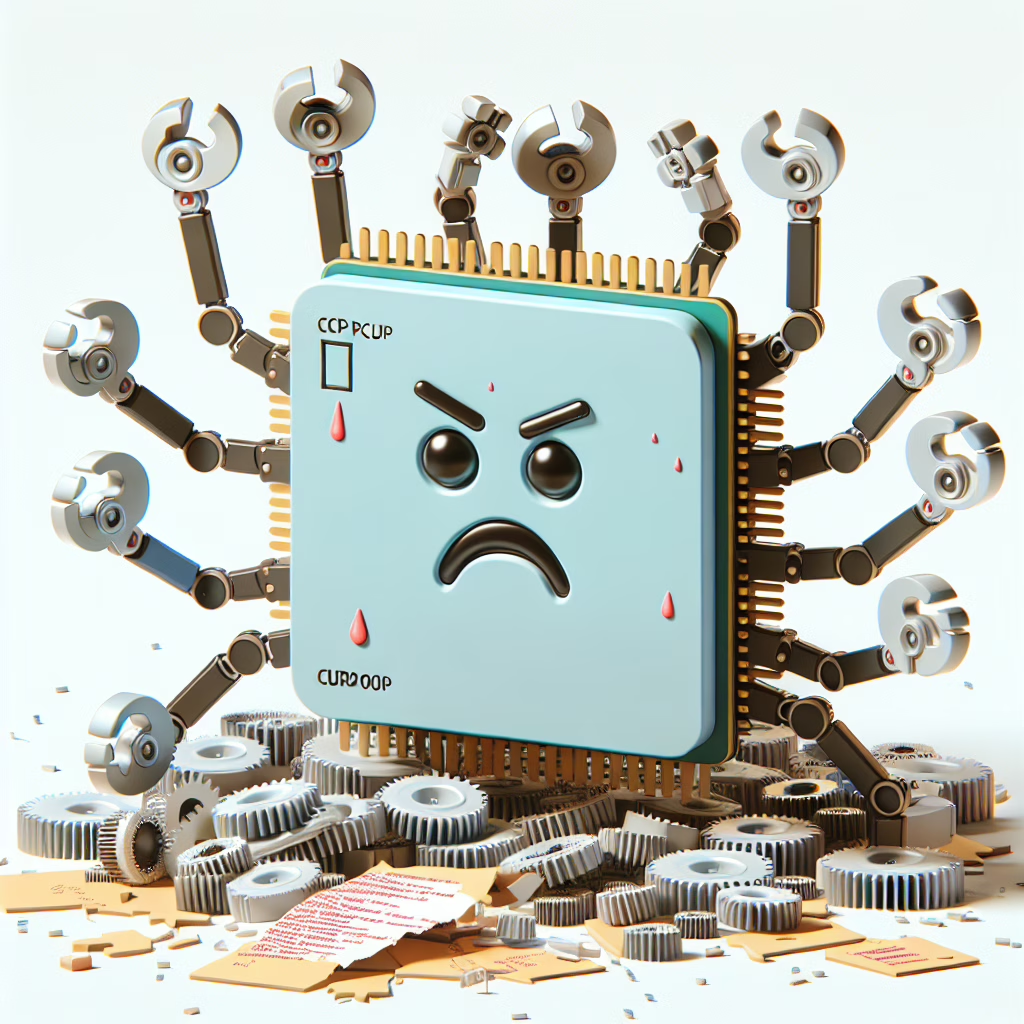Ah, the world of CPUs! A place where stability is supposed to reign supreme but often resembles a soap opera with more plot twists than a season finale. Intel has just released a new patch for its CPUs that, let’s face it, many of us thought were finally out of the woods. But here we are again, folks! It’s like going back to your favorite restaurant only to find they’ve changed the menu—again!
What’s Cooking in the CPU Kitchen?
This latest patch aims to address those pesky instability issues that have had some users feeling like they’re in a game of digital whack-a-mole. For those who enjoy technical jargon, this update is designed to tackle CPU performance and stability woes that have been lurking in the shadows like an unwanted houseguest.
Intel’s release comes after numerous complaints from users experiencing everything from random shutdowns to mysterious system crashes. It’s almost as if these CPUs had their own agenda and decided to throw a tantrum whenever you needed them most—like when you’re trying to finish that important project or stream your favorite show.
What Exactly Is This Patch Fixing?
In this latest episode of ‘As the CPU Turns,’ Intel has rolled out fixes aimed at several specific issues. Users reported problems with CPU performance during high-load tasks, which is just a fancy way of saying that when push came to shove, these processors didn’t always deliver the goods. The patch targets microcode updates, which is essentially like giving your CPU a much-needed pep talk: “You can do better!”
This update focuses on improving power management and overall efficiency. So, if your CPU has been feeling sluggish lately—like it just binge-watched a whole season of a show instead of working—this patch might just give it the kick in the circuits it needs!
Why Does This Keep Happening?
You might be asking yourself, “Didn’t we already deal with this?” And you’d be right! It feels like we’re stuck in a time loop where every few months brings another patch, another round of updates, and another moment of hope followed by mild disappointment. It’s almost like getting the same birthday gift every year—thanks, Grandma!
The reality is that modern CPUs are incredibly complex beasts. They operate at speeds and efficiencies that would make even the fastest race car look like it’s stuck in traffic. With such complexity comes a higher likelihood of bugs and issues slipping through the cracks. It’s not ideal, but it’s also part of the technological rollercoaster ride we’ve all signed up for.
How Can You Stay Ahead?
If you want to avoid being caught off guard by the latest CPU drama, here are some tips:
- Stay Updated: Regularly check for patches and updates from Intel or your CPU manufacturer. Think of it as checking for new episodes of your favorite series!
- Monitor Performance: Keep an eye on your system’s performance metrics. If something feels off, don’t hesitate to investigate.
- Engage with Community: Join forums or communities discussing CPUs and technology. You’ll find camaraderie and perhaps some witty banter about your shared woes.
The Silver Lining in All This
While it can be frustrating dealing with instability issues and patches galore, there’s a bright side! Each update brings improvements not only to performance but also enhances security measures against potential threats. So while you might feel like you’re caught in a never-ending cycle of fixes, remember that each step forward helps create more robust systems for everyone.
So here’s to Intel‘s new patch! May it serve as both a band-aid for our current woes and a stepping stone towards a more stable future in computing. And as we toast our CPUs with digital drinks (well, maybe not literally), let’s hope this isn’t just another chapter in our ongoing saga!
If you’ve experienced any funny quirks or outright disasters thanks to your CPU, share your story with us! We’d love to hear how you survived the latest round of updates!
For more insights on technology trends and updates, check out our articles on AI website building, Quantum AI, and more!
For credible information on computer performance and updates, don’t forget to refer to resources like Tom’s Hardware and TechRadar.

